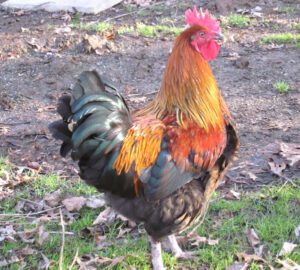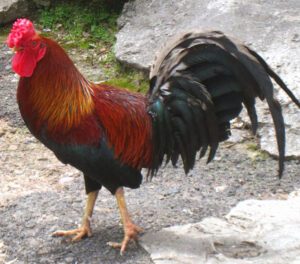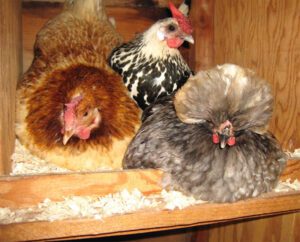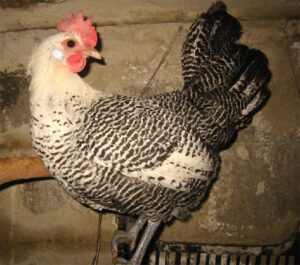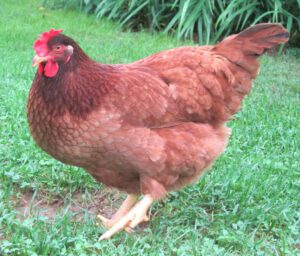Are you searching for more information about how long do chickens live? If yes, then you are in the right place. Here we are going to discuss more about the factors affecting the lifespan of a chicken. You should know about the lifespan of a chicken if you want to enhance your chicken keeping knowledge.
However, the chickens may generally live in backyard flocks for around or up to 6-8 years. And in some cases they can live for more than 10 years. However, there are several factors affecting the actual lifespan of a chicken. Here we are going to discuss more about how long do chicken live, and some other factors related to their life expectancy.
How long do chickens live?
Naturally the backyard chickens can live for around or up to 6-8 years, and more than 10 years in some cases. Most of the hens raised for eggs typically produce eggs for about 3-4 years. Total egg production, egg size, and the shell quality of the eggs decrease each year gradually. In commercial farms, the layers are typically kept for 2-3 years. Because their eggs production decreases after this time. And the broiler (meat producing variety) chickens typically live no more than 6-8 weeks when they reach slaughtering age.
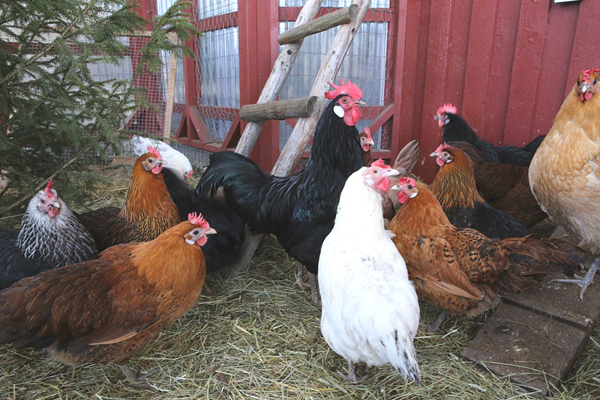
What factors affect the lifespan of a chicken?
There are several factors that affect the lifespan of a chicken. Here we are trying to list the most notable and common factors affecting your chicken’s lifespan.
1. Diet
Good diet of your chickens play a big part in their overall health and lifespan also. Providing your chickens an incomplete or imbalanced diet can lead to nutritional deficiencies, and that can ultimately shorten the lifespan of a chicken. So, always try to provide your chickens a healthy diet that can help them to build up a strong immune system for fighting off diseases and other health problems. And thus their lifespan will improve.
Housing environment
The housing system and surrounding environment in which the chickens are raised will also affect their lifespan. Chickens raised in a confined environment will have relatively shorter lifespan. While chickens raised in a natural environment with exposure to the outdoors will be able to build up immunity naturally to the various pathogens in the environment. And a natural immunity to the environment means the chickens can stay healthier as they age. And it will ultimately improve their lifespan.
Genetics
Genetics also play a very important role in a chicken’s lifespan. Choose the breed of chicken you want to raise which naturally has long lifespan. Clean, undiluted genetics makes for more disease resistant chickens. And a well-bred chicken is less prone to ailments such as organ failure, seizures, heart attacks, or other health problems. Although, large farms and hatcheries don’t pay much attention to good genetics. But as a hobby or small farmer, some people often search for some specific breeds and pay close attention to the gene pool of their chickens.
Gender
Both hens and rooster of a specific breed don’t have same lifespan. The roosters generally live longer than the hens in most cases. Because the roosters don’t have the strain of egg production. So, the roosters typically live longer than the hens.
Rearing method
Chickens can be raised in both confined and free-range systems. Free-ranging chickens tend to live longer as compared to the indoor chickens. Because free-ranging allows the chickens to nourish themselves with a natural diet and at the same time they get plenty of exercise. Both of these helps them to enhance their lifespan.
Veterinary care
Another important factor that can affect how long do chickens live is the availability of adequate veterinary care. Keep basic chicken first aid handy. And try to achieve the skill to treat common chicken diseases and health problems. This is very important for keeping your chickens healthy, and it will help to increase their lifespan.
Diseases and parasites
Chickens are just like other poultry birds, and they are susceptible to some common disease, parasites, and other health problems. Some common diseases are coccidiosis, Marek’s disease, and both internal and external parasites. Try to follow all the factors mentioned above to keep your chickens healthy and disease free.
Which chicken breed live the longest?
Average lifespan of a chicken depends on numerous factors, and there are specific breeds which live the longest life expectancy. Hybrid chickens typically live between 3 to 5 years, dual-purpose chickens live between 6 to 8 years, and heritage chicken breeds typically have a longer lifespan as compared to these two breeds. Heritage chicken breeds have an average lifespan of around or up to 8-10 years.
But the landrace chicken breeds are known to have the longest natural lifespans. Typically, the landrace chicken breeds can have a lifespan of over 10 years or sometimes even more. So, these chicken breeds are perfect for you if you want to keep them for longer period of time. Some examples of landrace chicken breeds include Icelandic chickens, Hedemoras, Swedish Blacks, and Swedish Flower chickens.
Do hens live longer than roosters?
No, hens typically have less lifespan as compared to the roosters. The roosters generally have longer lifespan as they do not have the strain of egg production.

How long some popular chicken breeds live?
Not all the chicken breeds have the same lifespan naturally. Here are the average lifespans of some common chicken breeds:
- Australorp: 6-10 years
- Cochin: 8-10 years
- Easter Eggers: 8-10 years
- Isa Browns: 2-3 years
- Leghorn: 4-6 years
- Orpington: 8-10 years
- Plymouth Rock: 8-10 years
- Rhode Island Red: 5-8 years
- Silkie: 7-9 years
- Wyandotte: 6-12 years
These are all we wanted to share with you about how long do chickens live, and some factors affecting a chicken’s lifespan. Hope this guide has helped you! Consider sharing it with your friends and family members if you find it helpful. Good luck and may God bless you!
